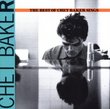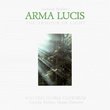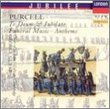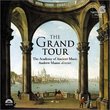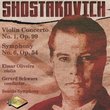| All Artists: Rolando Villazón Title: Handel: Arias Members Wishing: 0 Total Copies: 0 Label: Deutsche Grammophon Original Release Date: 1/1/2009 Re-Release Date: 3/31/2009 Genre: Classical Style: Opera & Classical Vocal Number of Discs: 1 SwapaCD Credits: 1 UPC: 028947780564 |
Search - Rolando Villazón :: Handel: Arias
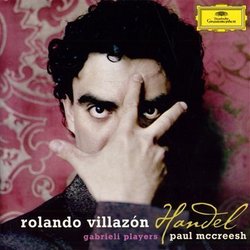 | Rolando Villazón Handel: Arias Genre: Classical
Internationally acclaimed tenor Rolando Villazón presents an all-new recording of Italian arias by Handel. Though Villazón is not generally associated with this repertoire, his muscular and virile performances ar... more » |
Larger Image |
CD DetailsSynopsis
Product Description Internationally acclaimed tenor Rolando Villazón presents an all-new recording of Italian arias by Handel. Though Villazón is not generally associated with this repertoire, his muscular and virile performances are a thrilling and new way to hear Handel. Paul McCreesh (a noted Handel expert) and the exciting Gabrieli Players join Villazón giving the listener both an authentic period performance as well as a new twist on familiar Handel. To suit his voice, Villazón performs not only tenor arias, but also transposed mezzo arias a practice familiar to Handel. This is a unique and wonderfully thrilling album completely unlike Villazón s previous recordings. Deluxe edition also available: Includes the complete CD as well as a DVD of aria performances, interviews and more all in an elegant hardcover booklet. Similarly Requested CDs
|
CD ReviewsThe anti-countertenor D. Vierheller | Los Angeles, CA United States | 04/01/2009 (5 out of 5 stars) "Villazon has canceled performances in recent seasons and rumors of his vocal decline have circulated, so it's a relief to find this marvellous singer in exuberantly healthy voice. Here he sings arias originally written for male characters with tenor voices and arias originally written for male characters with higher voices transposed into lower keys. He sings with pointed intonation, vivacious rhythm and long-breathed legato. He has wide dynamic range and surprizing agility in runs. He even trills. The tone is open, round and bright on top. Of course he's not as exquisite as the best mezzo-sopranos. But I'd love to hear him as Ariodante or Serse. This is a delicious and tantalizing recital." The joys of inauthenticity -- Villazon is brave and aappeali Santa Fe Listener | Santa Fe, NM USA | 04/03/2009 (4 out of 5 stars) "You can tell from DG's product description that they are holding their breaths. Villazon sings Handel pretty close to Verid -- by turns fervent, heroic, declamatory, and laden with vibrato. Will authentic types lead a protest? I can't tell. The tenor is faced with few oustanding arias in Handel's operas, where this vocal range tended to play a secondary role. There are more important numbers available in the oratorios, but since the theme here is Italian (the oratorio being almost exclusively in English), Villazon dips only into La Resurrezione. Portions of this program are transposed from mezzo roles, complete with flourishes and roulades in plenty, and by seizing upon "Ombra ma fu" and popular operas like Ariodante, Rodelinda and Serse (the latter is said to be Handel's most popular opera with modern audiences, along with Giulio Cesare) Villazon has a few hits to work with. He also has Paul McCreesh, who has enormous street cred as a Baroque condcutor. Villazon is a serious musician, and one can tell that he has applied himself to achieve the kind of detached phrasing that is popular in period circles; he also works hard at trills and runs, the area where female voices are undoubtedly superior. Is the result enjoyable? It was for me, but I am not steeped in authenticity, so others will have expert opinions. Listen to his courageous, unstinting approach to the fearsomely difficult arias from Ariodante, and you'll know if this CD is right for you. Flaws? Villazon tends to lunge at fast passages, and his timbre, always baritonal, doesn't offer much tonal variety. It could be quite a bit sweeter, for example. He could also be more varied in his moods. A good deal of this recital is styled in a generically melancholy/sensitve mood. Yet there's a lot to be said for a thrilling, robust sound and fearless attack. Villazon is never prim and always musical, so this foray into foreign territory brings real pleasure. Here's the program as listed at a British website: Tamerlano: Ciel e terra armi di sdegno and Su la sponda del pigro Lete Fatto inferno ... Pastorello d'un povero armento Serse: Frondi tenere e belle ... Ombra mai fù Più che penso alle fiamme del core (Serse) Crude furie (Serse) Scherza infida (Ariodante) Dopo notte (Ariodante) Oh per me lieto, avventuroso giorno! (Tamerlano, Act III, 10) Fremi, minaccia" - "No, vo' seguirti anch'io (Tamerlano) O sempre avversi dei! (Bajazet) with Rebecca Bottone (Asteria) & Jean Gandoullet (Tamerlano) Caro figlio! (La Resurrezione) Da capo embellishments by Jory Vinikour Christopher Suckling (cello) & Robert Howarth (harpsichord)" Not Your Grandson's Handel! G P Padillo | Portland, ME United States | 06/23/2009 (5 out of 5 stars) "I've waited until I've had more than just a few opportunities to listen to this recital full through before writing a review.
The majority of reviews and comments I've read have not been at all favorable - some even a bit scathing. This is something I can't quite comprehend as the more I listen, the more I've grown to love what Villazon does here. Some have called it a "throwback" to the "bad old days" of full voiced singers singing Handel as though it were Mozart, or worse, Mahler. I disagree and rather strongly. While it certainly sounds as it could be a different approach to Handel singing, , I find it to be more of a a "modern romantic tenor" bringing his own style and deploying it in a decidedly bravura approach that makes most of h is choices in this repertoire exciting and true to the spirit of the baroque. The strongest criticisms seem to take issue with Villazon's somewhat over-the-top manner in delivering this material. That may be what I enjoy the most. Listen to the second track, the recitative to Grimoaldo's aria "Pastorello dun povero armento" or Serse's aria "Crude furie degl' orridi abissi" When has a tenor gone "there" so willingly, performing baroque music with this kind of abandon, not to mention intensity? This type of excess is oft considered "thrilling" when done by a female performer - indeed, Joyce diDonato in the same aria ("Crude furie") was praised to the rafters (and justly so!) for not only her bravura way with the fiery coloratura, but for the thousand different hues she hurled into the music, sinking her teeth into the meat of the text and almost spitting it out. But a tenor heard primarily in Verdi, Tchaikovsky and Puccini seems not to be able to make those same choices. What's particularly interesting to me is the way Villazon and McCreesh move through this material in ways that are almost unexpected, but which make perfect sense. After having heard some thrilling - near gasp-inducing leaps and flourishes, something like "Ombra mai fu" feels almost pure and cleansing and the simple addition of a well-executed trill makes the scene "pop"with life that is almost rare in a number like this. This is not to say everything is perfect on this disc, and sometimes the low tessitura (e.g., the central portion of "Scherza infida") can find our tenor getting a tad growly in music sitting a bit lower (even if only a note or two) than he's usually addressing. Still, we seem to be more forgiving when a soprano (or lyric mezzo) gets a bit gravelly on a low note. But, as heard in Villazon's "Scherza infida" there is a melting musicality thatmakes up (to these ears at least) for any shortcoming in the inability to sound perfect in every range. Another thing I love about this recital is the freedom of the ornamentation employed. Villazon's trills, runs, appogiatura, grupetti, etc., come off with a natural ease and authoritythat would be the envy of a number of singers who sing almost nothing BUT baroque music! Above all there is a sense of love and admiration for this music that comes shining through from start to finish. The level of musicmaking between Villazon, Paul McCreesh and the early instruments of the Gabrieli Players is never less than top drawer and all wed to a sense of joyousness and meaning which infuses every bar. Regardless of what one might think of his choices, I dare anyone to listen to, say, "Dopo notte atra e funesta"and not feel the thrilling connection between the performers and the music they're sharing. Then there is the "dark" theatricality that permeats some numbers - with the tenor taking choices that can understandably be seen as controversial. The strangled whispers with which he ends Bajazet's emotional scene has been much commented upon - but you know what? I like it. Look at the text: "My sight is already fading . . . death, I feel you! This horror is your punishment." While I can understand purists cringing here, we can't know for certain such a "device" was not employed in Handel's time and here and now, singer (and maestro) seem to find it a valid way of interpreting this dark moment and pull it off with complete conviction. If I've any disappointment it is in the way the recital ends - with St. John's two numbers from "La Resurrezione." This is not to say that they are not sung beautifully, or that Villazon is found wanting in the emotional intensity heard throughout the rest of the recital, but for my money they simply don't have the"oomph" to draw a disc like this to its conclusion. This, however is purely grousing on my part. This disc will ever find its way into a widely accepted Handelian catalog, but I think those willing to go along for a wild ride, fueled by fury, passion, joy and total admiration of one of the greatest composers of any era,will find something very, very special here. " |

 Track Listings (14) - Disc #1
Track Listings (14) - Disc #1
